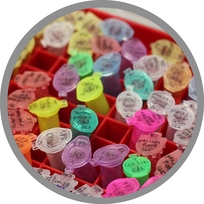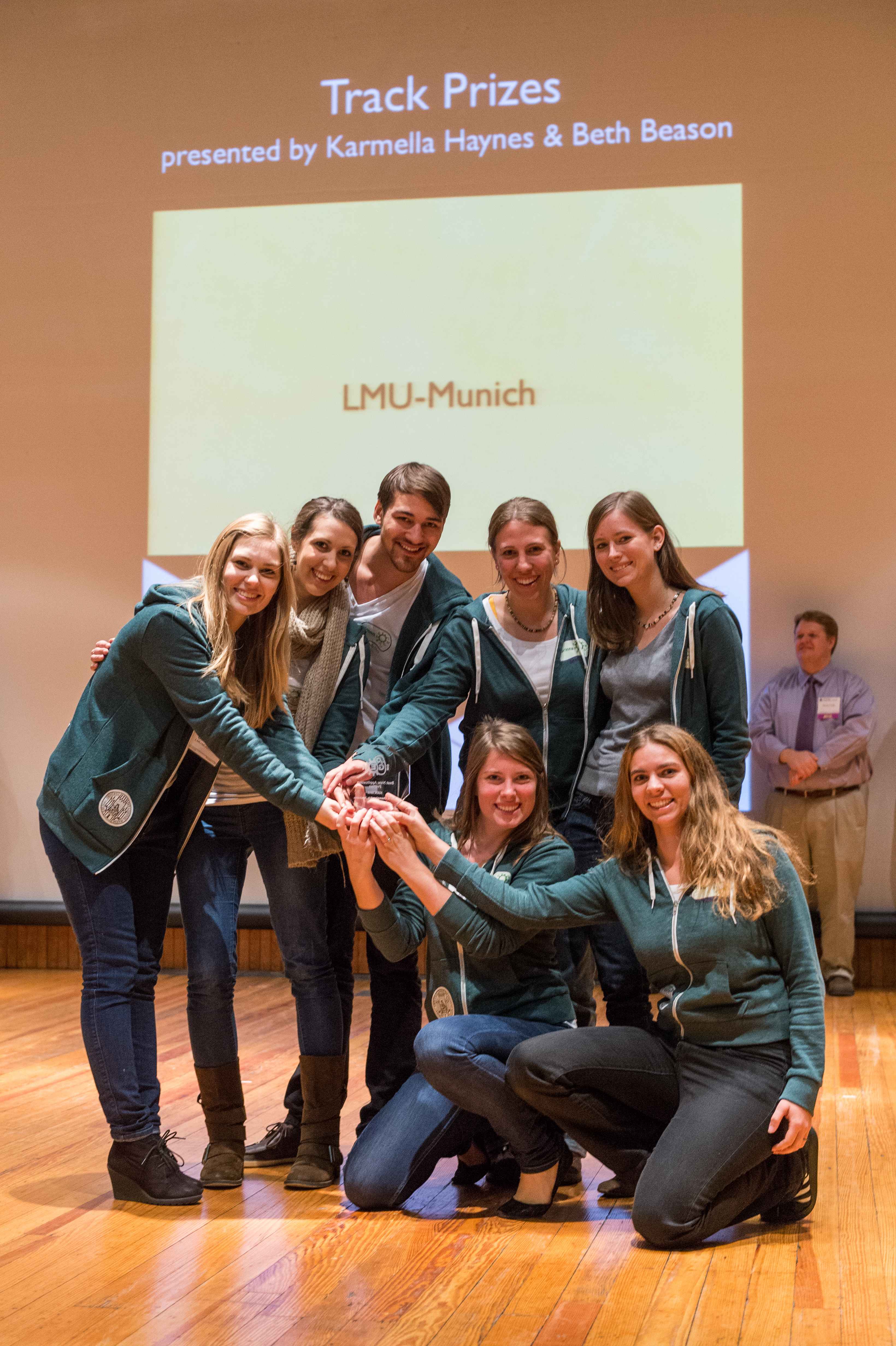Team:LMU-Munich/Abstract
From 2012.igem.org
(Created page with "<!-- Include the next line at the beginning of every page --> {{:Team:LMU-Munich/Templates/Page Header|File:Team-LMU_Photo1.jpg}} ==='''Bead'''zillus: Fundamental BioBricks for ...") |
Franzi.Duerr (Talk | contribs) |
||
| Line 8: | Line 8: | ||
</p> | </p> | ||
| - | [[File:NEXT.png|right|80px|link=Team:LMU-Munich/Why_Beadzillus]] | + | [[File:NEXT.png|right|80px|link=Team:LMU-Munich/Why_Beadzillus]] [[File:BACK.png|left|80px|link=Team:LMU-Munich]] |
Revision as of 15:05, 25 October 2012

The LMU-Munich team is exuberantly happy about the great success at the World Championship Jamboree in Boston. Our project Beadzillus finished 4th and won the prize for the "Best Wiki" (with Slovenia) and "Best New Application Project".
[ more news ]

Beadzillus: Fundamental BioBricks for Bacillus subtilis and spores as a platform for protein display
We chose to work with Bacillus subtilis to set new horizons and offer tools for this model organism to the Escherichia coli-dominated world of iGEM. Therefore, we created a BacillusBioBrickBox (B4) composed of reporter genes, defined promoters, as well as reporter, expression, and empty vectors in BioBrick standard. B. subtilis naturally produces stress resistant endospores which can germinate in response to suitable environmental conditions. To highlight this unique feature using the B4, we developed Sporobeads. These are spores displaying fusion proteins on their surface. As a proof of principle, we fused GFP to the outermost layer. Expanding this idea, we designed a Sporovector to easily create any Sporobead imaginable. Because the Sporobeads must be biologically safe and stable vehicles, we prevented germination by knocking out involved genes and developed a Suicideswitch turned on in case of germination. With the project Beadzillus, our team demonstrates the powerful nature of B. subtilis.
 "
"





